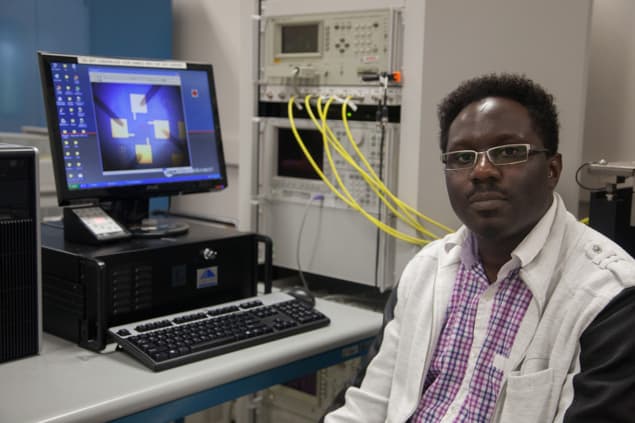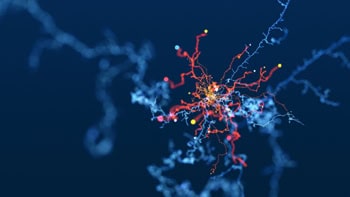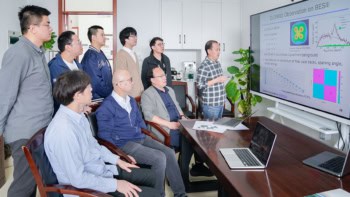Deji Akinwande is a professor at the University of Texas at Austin. His research focuses on 2D materials, nanoelectronics and nanotechnology, pioneering device innovations from lab towards applications. He is a co-inventor of a high-frequency chip-to-chip interconnect and an electrically small antenna for bio-electronics. Akinwande was awarded the Presidential Early Career Award for Scientists and Engineers in 2016 from then-US president Barack Obama.

What skills do you use every day in your job?
Communication is very important, as are other “soft” skills such as networking and collaboration with peers, students and leaders in the field. I think that basically every student (and indeed everybody involved in research) will eventually need to become skilled in project management. Knowing when to end a project, when to pivot it in a different direction and how to manage risk are all really important. Failure is an option – and often the experience when you’re doing research – so individuals have to be resilient. They have to embrace failure, learn from it and move on.
Knowing when to end a project, when to pivot it in a different direction and how to manage risk are all really important
Of course, technical skills are also very important. We use statistics frequently to analyse our data, and we also use ideas from algebra, calculus (curvature, slopes and vectors) and matrix mathematics. Those skill sets are often needed because we’re constantly dealing with data. And then there are specific physics skills, like an understanding of electromagnetics and (especially) solid-state physics. Because we work on devices, we deal with concepts in solid-state physics on a day-to-day basis in order to understand the materials the devices are made from and what we should expect from them. All those technical skills are very prominent.
One of the most challenging aspects of my work is that the materials we’ve known about historically are bulk materials – steel, copper, gold, iron. These materials have been well studied for 50 or 100 years, maybe more. But the atomically thin materials that I work with are not well studied. There are a lot of unknowns. We have to learn the basics of their materials science: their kinetics and thermal dynamics, what their phase diagrams look like, and so on. These are not things that I was privy to in my undergraduate degree or even my graduate education, but they are necessary, and you also need to know how to characterize these materials with advanced tools.
What do you like best and least about your job?
For me, and perhaps for many of my kind, what we like best is discovery. The whole point of doing research, to some extent, is to discover things that haven’t been discovered before. That’s always a thrill for us.
With every career, there will be things that you doesn’t necessarily like. I don’t really enjoy the paperwork and bureaucratic bottlenecks that are abundant in our field, but those are things that we have to deal with. They’re not fun, but they are necessary, so we accept them.
What do you know today, that you wish you knew when you were starting out in your career?
In retrospect, there are many things that I wish I knew, but I think I would go back and emphasize the soft skills. Of course, I had an idea when I was younger that they were important, but I wish I had become more involved and acquainted with skills such as networking and communication. Those skills are very important and often they are not adequately taught, or opportunities to get this experience are not abundant when one is an undergraduate or postgraduate student.



